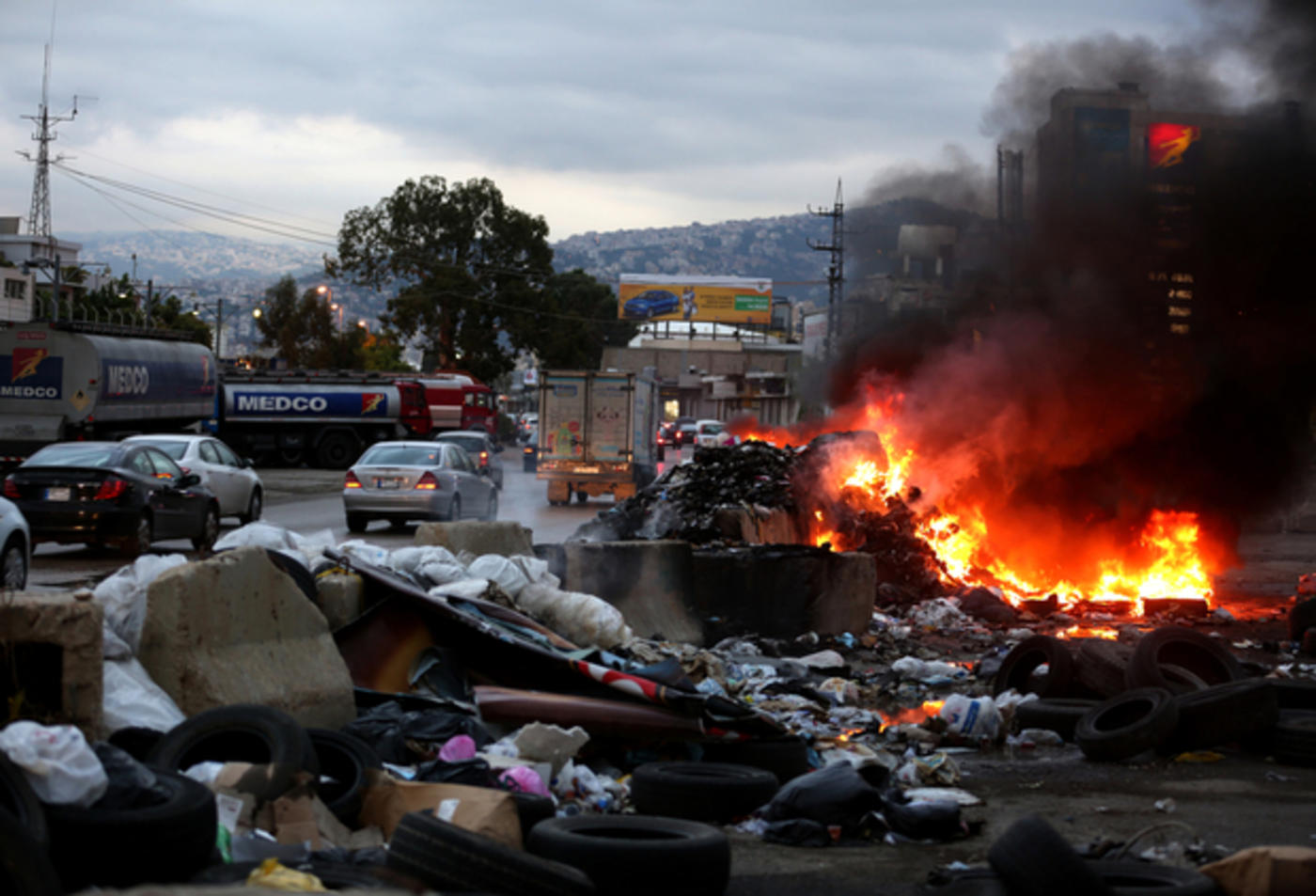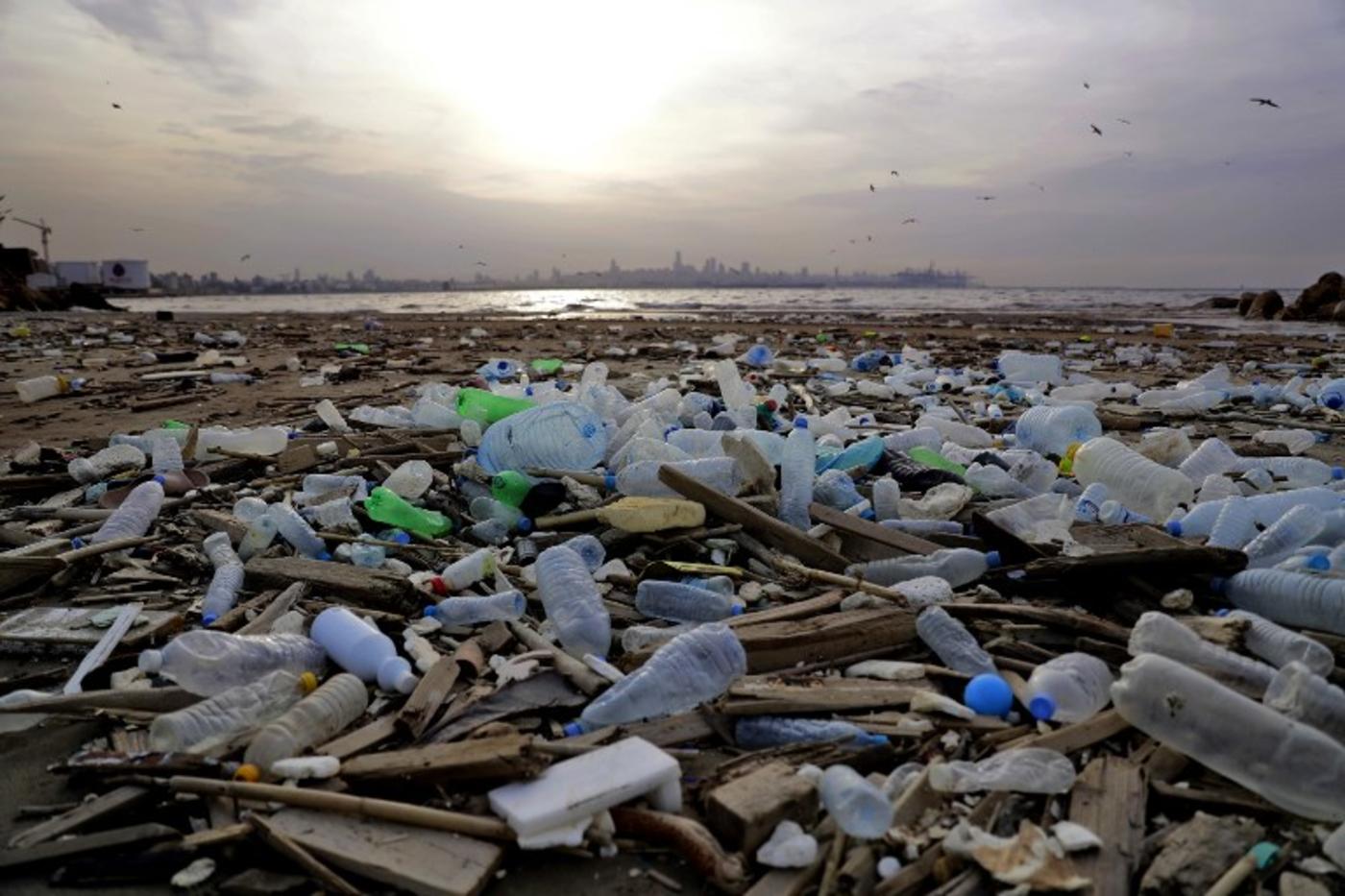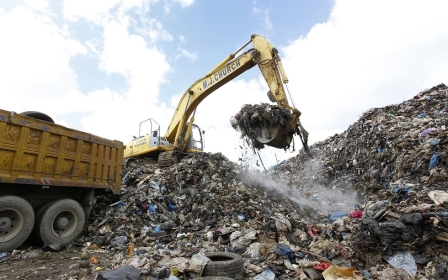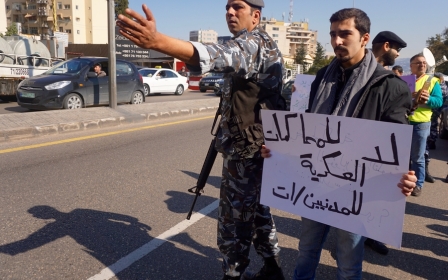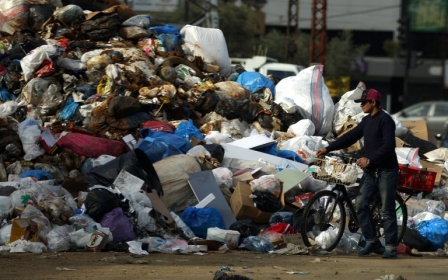As toxic waste continues to burn, Lebanon is 'inhaling its own death', says report
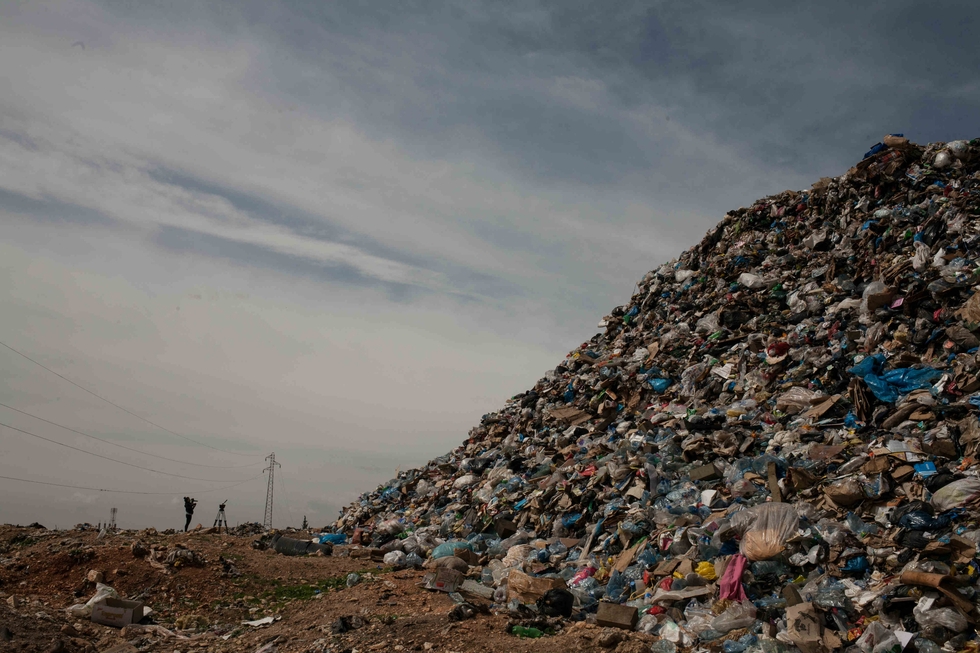
BEIRUT - “From my house, I see flames and then heavy smoke. People are sick. We close the windows but it’s still hard to breathe and my children all have allergies,” said Moussa, a gardener from Chehabiye in south Lebanon.
"I live about 1,500 metres away from the dump site. They bring two or three full trucks each day and burn them."
This phenomenon of burning rubbish can be found across the country.
Just north of Beirut in the village of Fanar, Marcelle Touma, a librarian, has to close her windows to prevent the putrid smoke from coming in.
New MEE newsletter: Jerusalem Dispatch
Sign up to get the latest insights and analysis on Israel-Palestine, alongside Turkey Unpacked and other MEE newsletters
“They burn all the garbage during the night, in the forest nearby – the smell is very strong,” said Touma.
“They do it once or twice a week. I have to close all my windows to keep the smoke from coming in.”
And these are not isolated cases.
Human Rights Watch has been looking at the health effects of this unregulated rubbish burning, between September 2016 and May 2017.
The report’s name speaks for itself - As If You’re Inhaling Your Death.
“Those living near open burning reported an array of health problems consistent with the frequent and sustained inhalation of smoke from the open burning of waste,” said the report.
But how did it get to this point? For Human Rights Watch: “Open burning is a direct result of the Lebanese government’s mismanagement of its solid waste.”
1,500 deaths a year
In Lebanon, there is not one institution responsible for solid waste management. The task is shared between ministries, municipalities and private donors.
There are at least 941 open dumps across Lebanon, according to figures from the Ministry of Environment in June 2017, which also showed that 77 percent of the country’s rubbish is not treated. This includes household rubbish but also dangerous medical and industrial waste, which eventually gets burnt.
Two years ago, the situation got even worse with the now infamous ‘rubbish crisis’ when in July 2015 locals prevented trucks from depositing rubbish at Lebanon’s main landfill, fearing health ramifications from the overflowing site.
Throughout the entire summer, rubbish piled up in the streets of Beirut and Mount Lebanon, prompting many residents to burn it themselves.
After the crisis began, reports of open burning in the Mount Lebanon region rose 330 percent in 2015, and a further 250 percent in 2016, Lebanon’s fire department told Human Rights Watch.
As of today, the World Health Organisation considers air pollution in Lebanon to be three times the “safe level” and estimates that almost 1,500 people die of air pollution-related diseases each year.
Toxic elements
Inhaling fumes from burning rubbish is particularly detrimental to health because the smoke contains toxic elements such as fine particles, and dioxins, chemical compounds poisonous to the human body.
“Since the beginning of the crisis, we’ve noticed an abnormal increase in patients with allergies, asthma, respiratory tract infections, bronchitis and pneumonia,” said Dr Alfred Dib, lung specialist at the Sacré-Coeur hospital in Beirut.
Unfortunately, doctors are unable to help much.
“When a patient suffers from pollution, the solution is to avoid pollution but we can’t tell him to change his house or his workplace,” he added.
The ongoing crisis and the myriad problems that stem from it are leading many in Lebanon to become increasingly concerned about cancer.
A study carried out during the 2015 crisis by the American University of Beirut showed an “alarming increase in pollutant concentrations which was translated into an increase in short-term cancer risk from about one to 20 people per million on the days when waste was being burned”.
Moving the problem on
So far, the Lebanese government – which is struggling with chronic political instability and over a million Syrian refugees - has provided very little response.
Since 2012, the parliament has been due to vote on a draft law on solid waste management that would create one regulatory body to supervise all treatment processes under the responsibility of the Ministry of Environment.
In 2016, the Ministry of Health reported 85 municipalities to the judiciary for burning waste, and while some fines were issued, it didn’t appear to be a lasting deterrent.
When the crisis hit its peak in 2015, a group of activists and angry citizens gathered under one banner: YouStink. They demanded the environment minister resign and condemned more broadly the political corruption which they said had created the conditions for such a crisis.
And while the government eventually removed the rubbish from the streets of Beirut, in response to large protests arranged by YouStink, their solution was to move it further afield.
The rubbish from Beirut and Mount Lebanon was brought to two improvised landfills in the northern and southern suburbs of the capital – each causing their own scandal.
One near the airport attracted so many birds it became dangerous for planes to land, and the other was found to be dumping rubbish directly into the sea.
A tonne of trash in Lebanon is worth $140 to $170 and so the people in power would rather secure their piece of the cake than solve the problem
- Claude Jaber, YouStink activist
In the long run, Lebanese authorities say they want to install incineration plants, but this option has also been rejected by activists.
“Because of corruption, we don’t trust the political class any more,” said Claude Jaber, an activist from the YouStink movement.
“Since the 1990s, the garbage issue is a political one because it makes [politicians] a lot of money,” he added.
“A tonne of trash in Lebanon is worth $140 to $170 and so the people in power would rather secure their piece of the cake than solve the problem.
“But it has repercussions on public health and they can’t hide it any more.”
Middle East Eye delivers independent and unrivalled coverage and analysis of the Middle East, North Africa and beyond. To learn more about republishing this content and the associated fees, please fill out this form. More about MEE can be found here.


